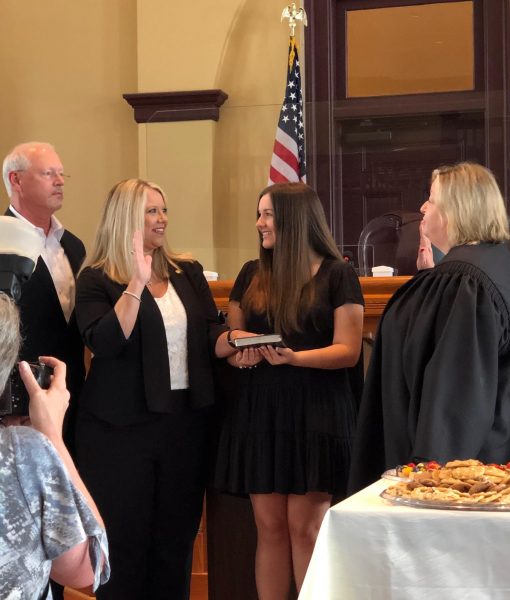NEW STATE OF EMERGENCY PROVIDES HEALTHCARE PROVIDER FLEXIBILITIES
By Angie Cameron Smith with Burr & Forman, LLP
On July 6, 2021 Governor Kay Ivey allowed the State of Emergency in Alabama to expire. She had previously proclaimed a State of Emergency due to the COVID-19 Pandemic effective March 13, 2020. Along with that proclamation, came the invocation of Alabama’s Emergency Management Act. When the state of emergency ended, so did the waivers or suspension of state regulatory requirements that were afforded to healthcare providers operating during the pandemic. Due to the spike in COVID-19 cases, which appear to be related to the Delta variant, Governor Ivey proclaimed a new State of Emergency effective August 13, 2021. Why does this matter? Because many of the expired waivers that allowed for flexibilities for healthcare providers have now been renewed under the new State of Emergency.
Under Governor Ivey’s August 13 proclamation and pursuant to the authority granted to her under the Emergency Management Act, she cut “red tape for health care providers.” The emergency proclamation removes barriers to allow additional healthcare providers and resources to address the surge in cases and is focused primarily on staffing at acute care hospitals. The following apply to general acute care hospitals, critical access hospitals or specialized hospitals licensed by the Alabama Department of Public Health:
- A hospital’s chief of the medical staff or medical director may collaborate with or supervise an unlimited number of certified registered nurse practitioners (CRNP), certified nurse midwives (CNM); physician assistants (PA) and anesthesiology assistants (AA), and provide direction to an unlimited number of certified registered nurse anesthetists (CRNA);
- CRNPs, CNMs, PAs and AAs working under the supervision of the chief of the medical staff at a hospital may implement the standard protocol and formulary approved by the Alabama Board of Medical Examiners;
- CRNAs under direction of, and AAs under registration with, a hospital’s chief of the medical staff or medical director or his/her physician designee, are authorized to determine, prepare, monitor or administer legend and controlled medications for performance of anesthesia-related services, airway management (related or unrelated to anesthesia), and other acute care services within their scope of practice.
- CRNPs, CNMs and CRNAs who possess an active, unencumbered nurse license or equivalent advanced practice approval issued by an appropriate licensing board of another state, the District of Columbia, or Canada, are authorized to practice in covered hospitals as if licensed in Alabama; and
- Alabama’s Board of Pharmacy, Board of Nursing, Medical Licensure Commission, and State Board of Medical Examiners are authorized to adopt emergency rules to allow for expedited licensure and/or temporary permits for individuals possessing unencumbered licenses in other states. At this time, this is limited to those practitioners providing care in inpatient units, emergency departments or other acute care units within acute care hospitals, critical access hospitals or specialized hospitals.
Another flexibility afforded under the Governor’s new proclamation is the authorization granted to the State Health Planning and Development Agency (SHPDA) to invoke the emergency rule passed last legislative session to allow for the issuance of emergency Certificates of Need. This waiver was effective during the last Public Health Emergency to permit facilities to create alternate care sites. Alternate care sites allow for a healthcare facility to convert parts of or entire facilities to provide care for which is not originally authorized. For example, while hospitals struggle for placement of patients and surge capacities, these waivers would allow hospitals to create or use space not normally used for patient care or acute patient care. Other healthcare providers may also seek waivers under the SHPDA Emergency Rule. Under the previous health emergency skilled nursing facilities were able to transfer patients who did not require acute care but were in need of isolation and observation due to COVID to areas in a hospital not being used. More information about alternate care sites can be found at https://www.alabamapublichealth.gov/covid19/assets/cov-adph-alt-care-site-app.pdf and http://shpda.alabama.gov/REQUEST%20FOR%20WAIVER%20Fillable%20Form.pdf.
Another important aspect of the State of Emergency proclamation is the application of an alternative standard of care. When evaluating whether a healthcare provider has breached the standard of care in a medical malpractice case, the analysis involves what a reasonable person would do in like or similar circumstances. Under the alternative standards of care, if a provider has invoked its emergency operation plan in response to the public health emergency, it can implement alternative standards of care and those standards are “declared to be state-approved standard of care in healthcare facilities.”
You may also recall that during the last legislative session there was an immunity statute passed to provide liability protections to healthcare providers and businesses during the COVID-19 pandemic. This immunity statute should be unaffected by the gap between the last state of emergency ending on July 6, 2021, and the new state of emergency invoked on August 13, 2021.
The federal public health emergency (PHE) and the waivers under the U.S. Secretary of Health and Human Services Section 1135 declaration is also unaffected by the state of emergency. The current federal PHE is set to last through October 18, 2021, with some indication from the federal administration that it will continue through the end of the year.
Angie Smith is a partner at Burr & Forman LLP and practices in the Healthcare Industry Group. Angie may be reached at (205) 458-5209 or acsmith@burr.com.
Posted in: Coronavirus, Legal Watch, MVP
Leave a Comment (0) →





